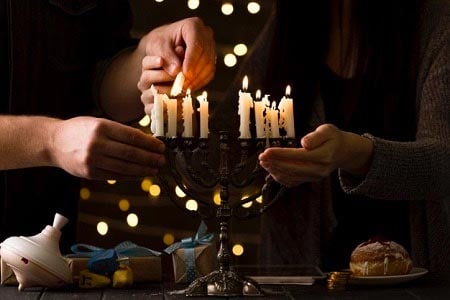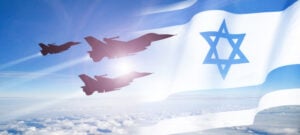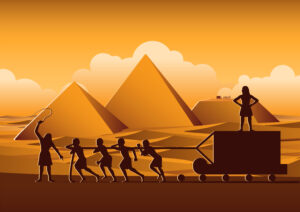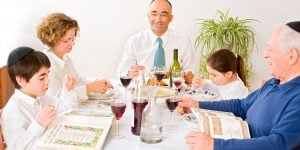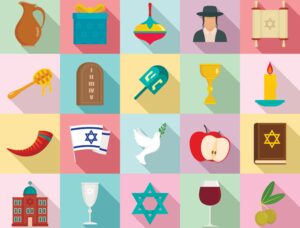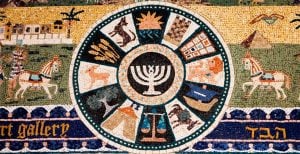In our previous blog, “How well do YOU know the Hanukkah story???” we had such a fantastic time writing about the exciting and wondrous story of Hanukkah that even though we tried our best to keep it short, our article ended up being far longer than we had expected well before we had even covered half of the story. With still so much left to say, we truly felt that it would be a shame to let all our research go to waste without first sharing it with our incredible readers! So without further ado, let’s continue with this “part 2” of our Hanukkah article and see just how much more history and richness there is to this one very special holiday!
The Etymology of the Maccabee Name:
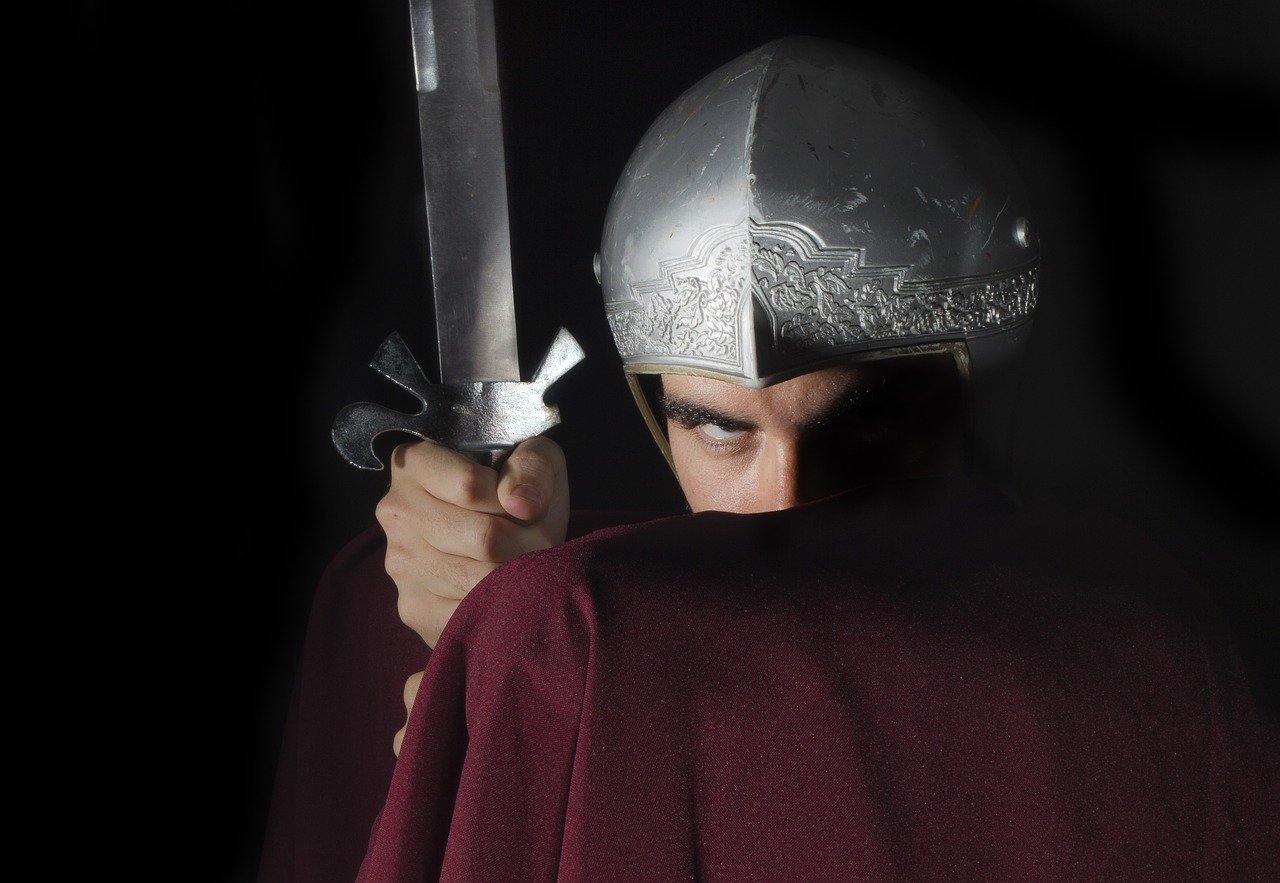 We talked a lot about the Maccabees in our last article, discussing who they were, how they began, and what their deeds were, but we didn’t have a chance to talk about their name, so let’s start with that. Interestingly, it is not entirely clear what inspired the Jewish freedom fighters to call themselves the “Maccabees,” however, it is often thought that the name derives from the Hebrew word, ‘Makabet,’ meaning “hammer.” The basis for this theory is that Mattityahu’s son and general, Yehuda, was given the nickname “Yehuda HaMaccabee” (Yehudah the Hammer) on account of his prowess in battle and his proclivity for hammering the enemy with such deadly force that few adversaries ever escaped his well-laid traps. Since Yehuda’s notoriety as the Jew’s greatest champion caused many of his foes to think twice about engaging the defiant warrior and his forces, it is believed that the Jewish rebels were likely in such awe of their plucky leader’s fearsome reputation, that they chose to name their resistance after him in hopes of instilling fear of his fury into their enemies. Makes lots of sense, right?
We talked a lot about the Maccabees in our last article, discussing who they were, how they began, and what their deeds were, but we didn’t have a chance to talk about their name, so let’s start with that. Interestingly, it is not entirely clear what inspired the Jewish freedom fighters to call themselves the “Maccabees,” however, it is often thought that the name derives from the Hebrew word, ‘Makabet,’ meaning “hammer.” The basis for this theory is that Mattityahu’s son and general, Yehuda, was given the nickname “Yehuda HaMaccabee” (Yehudah the Hammer) on account of his prowess in battle and his proclivity for hammering the enemy with such deadly force that few adversaries ever escaped his well-laid traps. Since Yehuda’s notoriety as the Jew’s greatest champion caused many of his foes to think twice about engaging the defiant warrior and his forces, it is believed that the Jewish rebels were likely in such awe of their plucky leader’s fearsome reputation, that they chose to name their resistance after him in hopes of instilling fear of his fury into their enemies. Makes lots of sense, right?
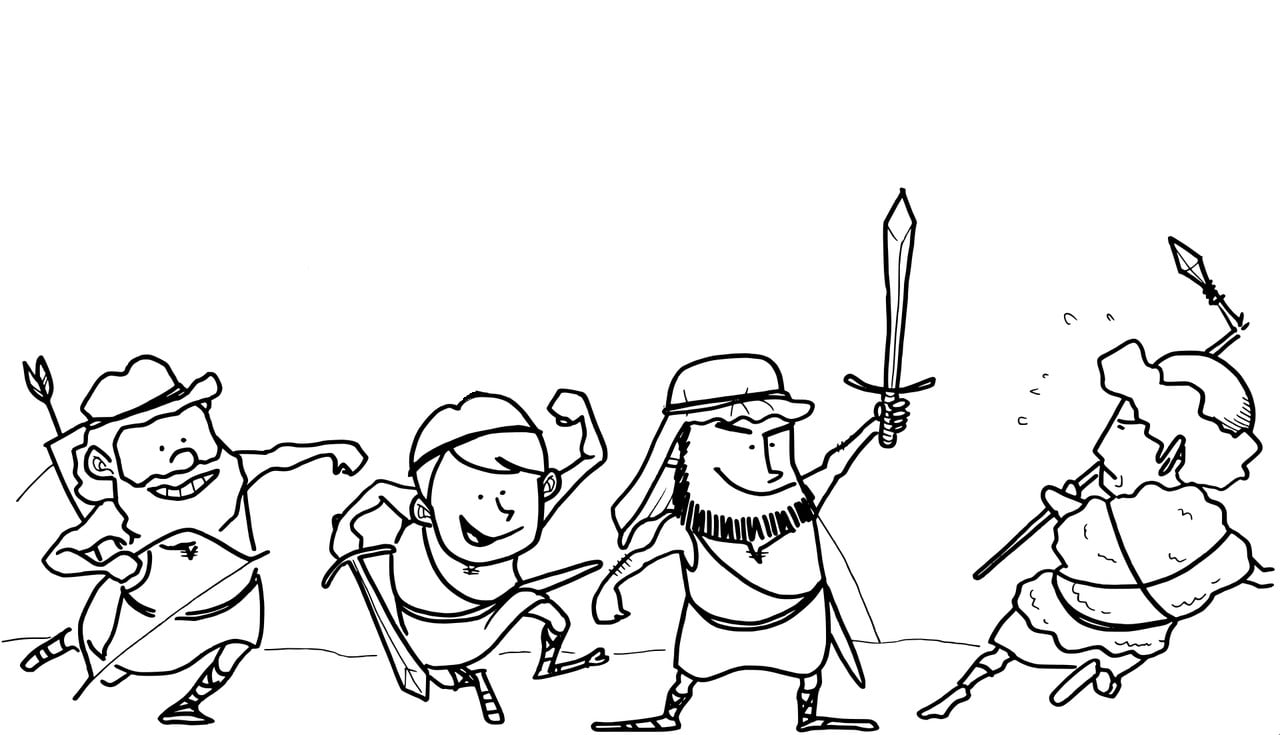 However, another theory suggests that the word ‘Maccabee’ may be an acronym for the Torah verse, ‘Mi Chamocha Ba’elim Adon-i’ meaning “Who among the gods is like you, Hashem?” It is known that the Maccabees used this particular verse as their trademark battle cry, uttering it as both an insult to their polytheistic enemies and as a reaffirmation of their cause; consequently, plenty of scholars speculate that the profound chant was so significant to the Maccabees, they decided to take it on as their name. Admittedly, this second opinion makes just as much sense as the first, which is one of the reasons why this debate on the Maccabees’ famous name is still ongoing! Luckily though, while there’s no way to tell which opinion is right, we do know one thing for sure – whatever else you want to say about them, the Maccabees certainly knew how to strike back and get things done!
However, another theory suggests that the word ‘Maccabee’ may be an acronym for the Torah verse, ‘Mi Chamocha Ba’elim Adon-i’ meaning “Who among the gods is like you, Hashem?” It is known that the Maccabees used this particular verse as their trademark battle cry, uttering it as both an insult to their polytheistic enemies and as a reaffirmation of their cause; consequently, plenty of scholars speculate that the profound chant was so significant to the Maccabees, they decided to take it on as their name. Admittedly, this second opinion makes just as much sense as the first, which is one of the reasons why this debate on the Maccabees’ famous name is still ongoing! Luckily though, while there’s no way to tell which opinion is right, we do know one thing for sure – whatever else you want to say about them, the Maccabees certainly knew how to strike back and get things done!
The Significance of Dreidels:
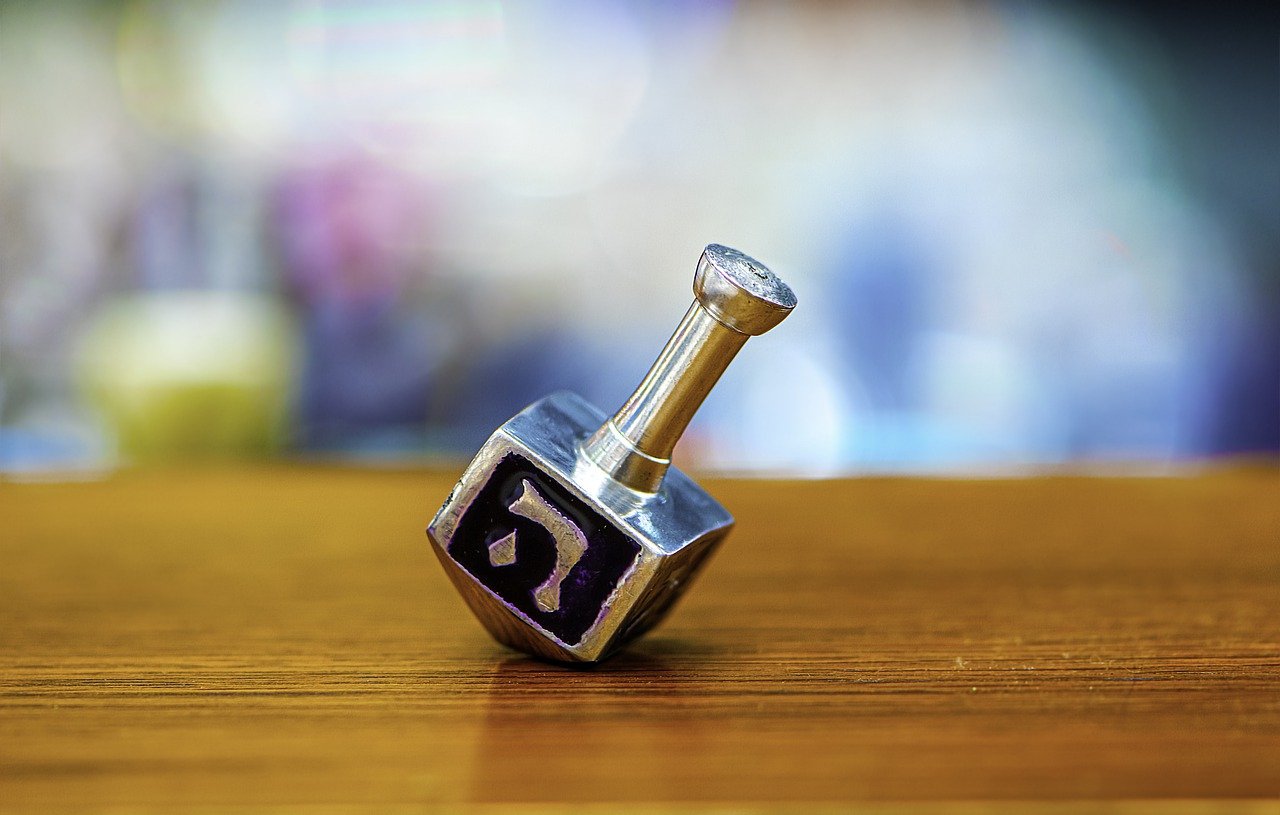 Moving forward, have you ever questioned why we play Dreidels on Hanukkah? Obviously, it’s a great game so we’re not complaining, but if you’ve ever had a moment where you just stopped and wondered what possible significance could a children’s toy have to the Hanukkah story, then let us tell you the answer!
Moving forward, have you ever questioned why we play Dreidels on Hanukkah? Obviously, it’s a great game so we’re not complaining, but if you’ve ever had a moment where you just stopped and wondered what possible significance could a children’s toy have to the Hanukkah story, then let us tell you the answer!
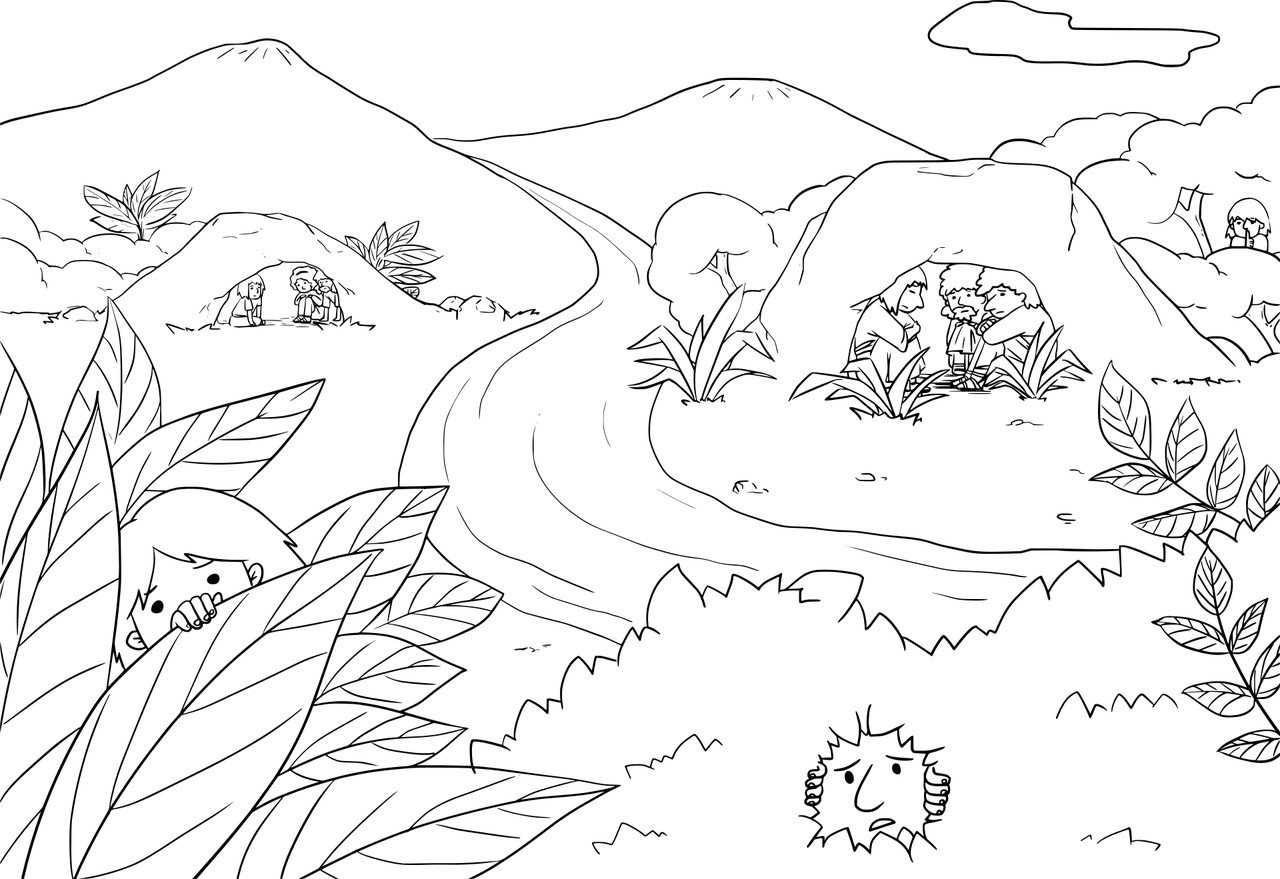 Basically, life under the tyrannical regime of the Seleucid Empire (the Syrian-Greeks) meant that the Jews suffered from lots of ruthless religious persecution for many years. Things were so bad for the Jewish people that if a Jew dared to practice the Jewish faith of his forefathers and was caught keeping Shabbat, eating Kosher, giving a child a Brit Milah, or any other fundamentally Jewish observance, the punishment for their defiance would be unspeakably cruel. This, understandably, led to such intense and widespread fear that many Jews desperately converted, or pretended to convert, to Hellenism to save themselves and their families. Yet despite these horrific conditions, Judaism continued to thrive here and there right beneath the oblivious noses of the Syrian-Greeks, which brings us to how Dreidels come into the story:
Basically, life under the tyrannical regime of the Seleucid Empire (the Syrian-Greeks) meant that the Jews suffered from lots of ruthless religious persecution for many years. Things were so bad for the Jewish people that if a Jew dared to practice the Jewish faith of his forefathers and was caught keeping Shabbat, eating Kosher, giving a child a Brit Milah, or any other fundamentally Jewish observance, the punishment for their defiance would be unspeakably cruel. This, understandably, led to such intense and widespread fear that many Jews desperately converted, or pretended to convert, to Hellenism to save themselves and their families. Yet despite these horrific conditions, Judaism continued to thrive here and there right beneath the oblivious noses of the Syrian-Greeks, which brings us to how Dreidels come into the story:
 According to Jewish folklore, not everyone was willing to give up the fight so easily. Some Jews were so fiercely determined to preserve their traditions that despite the dangers and potential consequences, they came up with a clever ruse to disguise their defiance: They hid, oftentimes in caves, and there they would study Torah and teach it to their children in secret, but anytime they received word that the Seleucids were approaching their hideouts, they would quickly conceal their Torah scrolls and pull out their Dreidels.
According to Jewish folklore, not everyone was willing to give up the fight so easily. Some Jews were so fiercely determined to preserve their traditions that despite the dangers and potential consequences, they came up with a clever ruse to disguise their defiance: They hid, oftentimes in caves, and there they would study Torah and teach it to their children in secret, but anytime they received word that the Seleucids were approaching their hideouts, they would quickly conceal their Torah scrolls and pull out their Dreidels.
 This way, by the time the Seleucids reached them, it appeared as though they had merely stumbled across a handful of adults and children engaged in a popular regional pastime and not anything suspicious. The Seleucids would then leave and the Jews would be able to resume learning Torah in relative safety. It was an effective strategy by all accounts, so the Jews continued playing their Dreidels anytime danger was near and for that reason, we still play Dreidel today (though thankfully, we don’t have to hide out in caves anymore!)
This way, by the time the Seleucids reached them, it appeared as though they had merely stumbled across a handful of adults and children engaged in a popular regional pastime and not anything suspicious. The Seleucids would then leave and the Jews would be able to resume learning Torah in relative safety. It was an effective strategy by all accounts, so the Jews continued playing their Dreidels anytime danger was near and for that reason, we still play Dreidel today (though thankfully, we don’t have to hide out in caves anymore!)
 So just like that, a bunch of simple children’s toys ended up playing a pivotal role in safeguarding countless individuals from repressive action as well as aiding the Jews with their mission to keep the tenets of Judaism living on! Cool, right?
So just like that, a bunch of simple children’s toys ended up playing a pivotal role in safeguarding countless individuals from repressive action as well as aiding the Jews with their mission to keep the tenets of Judaism living on! Cool, right?
If you want to make your own Dreidel this year, be sure to check out our article, “I Have a Little Dreidel; I Made It Out Of Clay” to see a fantastic step-by-step guide on making Dreidels!
Alright dear friends, it looks like once again, it’s time for us to say goodbye! Like always, we hope you had just as much fun reading about these amazing Hanukkah facts as we had writing about them, and we can’t wait for the next time we get the chance to share more great facts and stories with you! But until then, we wish you all the very best, and may you have a wonderful and bright Hanukkah full of happiness, light, and fun!
Hanukkah Sameach and lots of love from Israel,
Your friends at Judaica WebStore!
